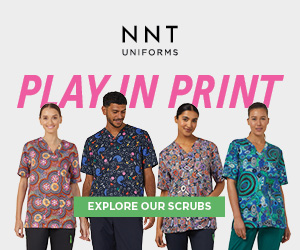Ever considered writing an abstract for a health conference but don’t know where to begin?
The Australasian Society for HIV, Viral Hepatitis and Sexual Health Medicine (ASHM) has you covered, launching a new on-demand training program to help nurses and midwives develop, submit and present effective conference abstracts.
The series of webinars provides expert advice and practical tips to help nurses and midwives elevate their research and share their work. The training includes advice on identifying ideas for a conference abstract, tips and tricks for writing a conference abstract, and how to create an engaging oral presentation.
ASHM Clinical Nurse Lead, Melinda Hassall, said equipping nurses with the skills to help profile their work in health was vital, as they provide valuable and distinct solutions to improve health systems.
“Nurses have unique perspectives and offer meaningful contributions to patient care, including innovative solutions on supporting vulnerable and disengaged populations,” she said.
“But nurses can only contribute their insights if they are supported with appropriate skills and time. This learning program provides nurses with a comprehensive guide to creating and presenting effective conference abstracts, which a powerful way to make an impact in the profession.”
Similarly, Clinical Nurse Consultant, William Hooke, who has presented the online learning program, said that upskilling nurses in abstract writing and conference presenting was important, as nurses offer a perspective that is most likely to reflect client needs.
“Nurses bring a combined role of patient advocacy, holistic health and varied clinical experience that lets them see the patient as a whole,” he said.
“As nurses, we’re trained in a different model of care, that allows us to support our clients’ medical, social and lifestyle needs…. It’s a distinct approach, which leaves us with distinct experiences and perspectives. That’s why it’s important for nurses to have the capacity to present their ideas – so we help improve models of care and broader sector challenges.”
Nurses and midwives can access the training program here








